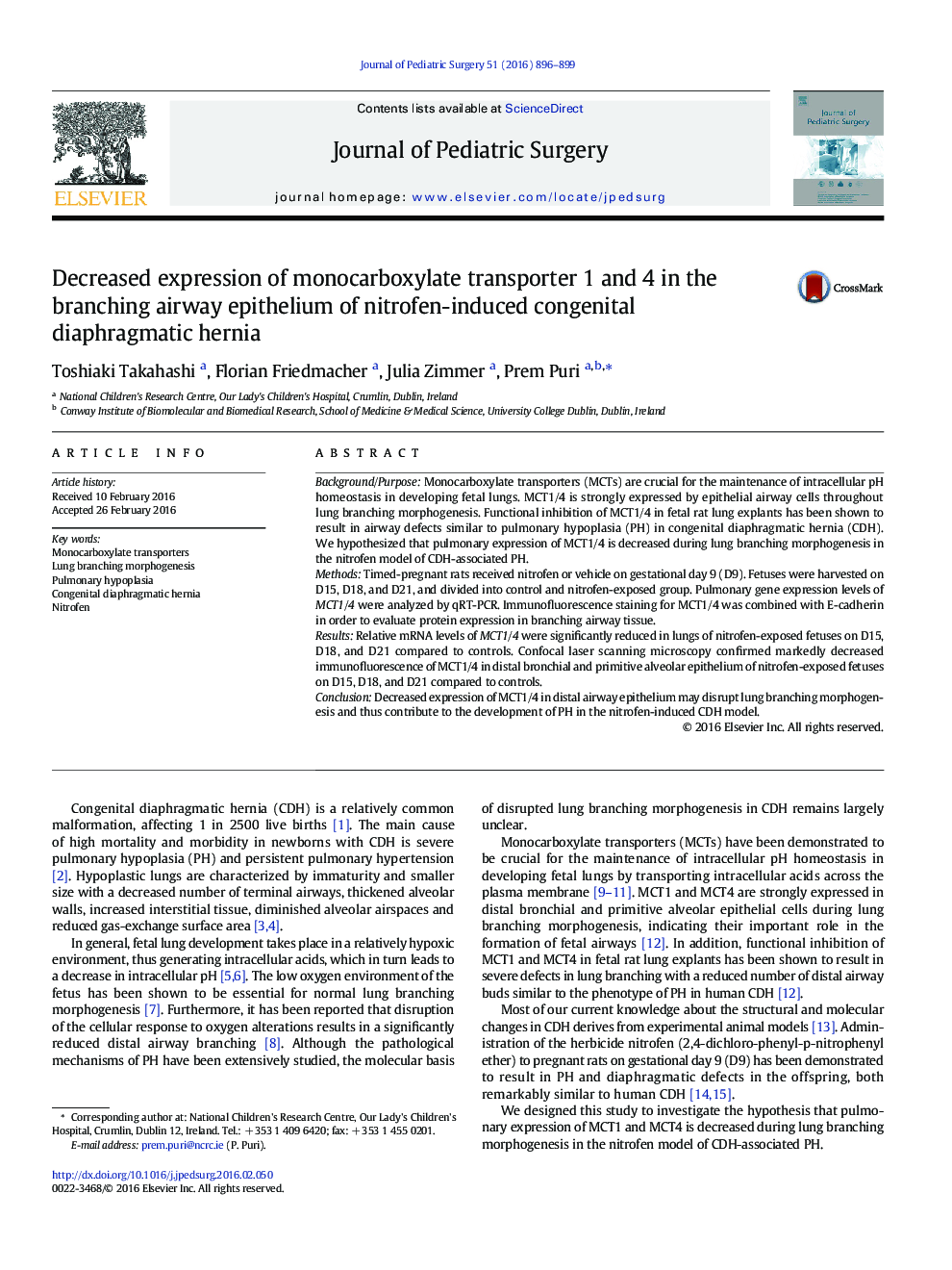| Article ID | Journal | Published Year | Pages | File Type |
|---|---|---|---|---|
| 4154901 | Journal of Pediatric Surgery | 2016 | 4 Pages |
Background/PurposeMonocarboxylate transporters (MCTs) are crucial for the maintenance of intracellular pH homeostasis in developing fetal lungs. MCT1/4 is strongly expressed by epithelial airway cells throughout lung branching morphogenesis. Functional inhibition of MCT1/4 in fetal rat lung explants has been shown to result in airway defects similar to pulmonary hypoplasia (PH) in congenital diaphragmatic hernia (CDH). We hypothesized that pulmonary expression of MCT1/4 is decreased during lung branching morphogenesis in the nitrofen model of CDH-associated PH.MethodsTimed-pregnant rats received nitrofen or vehicle on gestational day 9 (D9). Fetuses were harvested on D15, D18, and D21, and divided into control and nitrofen-exposed group. Pulmonary gene expression levels of MCT1/4 were analyzed by qRT-PCR. Immunofluorescence staining for MCT1/4 was combined with E-cadherin in order to evaluate protein expression in branching airway tissue.ResultsRelative mRNA levels of MCT1/4 were significantly reduced in lungs of nitrofen-exposed fetuses on D15, D18, and D21 compared to controls. Confocal laser scanning microscopy confirmed markedly decreased immunofluorescence of MCT1/4 in distal bronchial and primitive alveolar epithelium of nitrofen-exposed fetuses on D15, D18, and D21 compared to controls.ConclusionDecreased expression of MCT1/4 in distal airway epithelium may disrupt lung branching morphogenesis and thus contribute to the development of PH in the nitrofen-induced CDH model.
